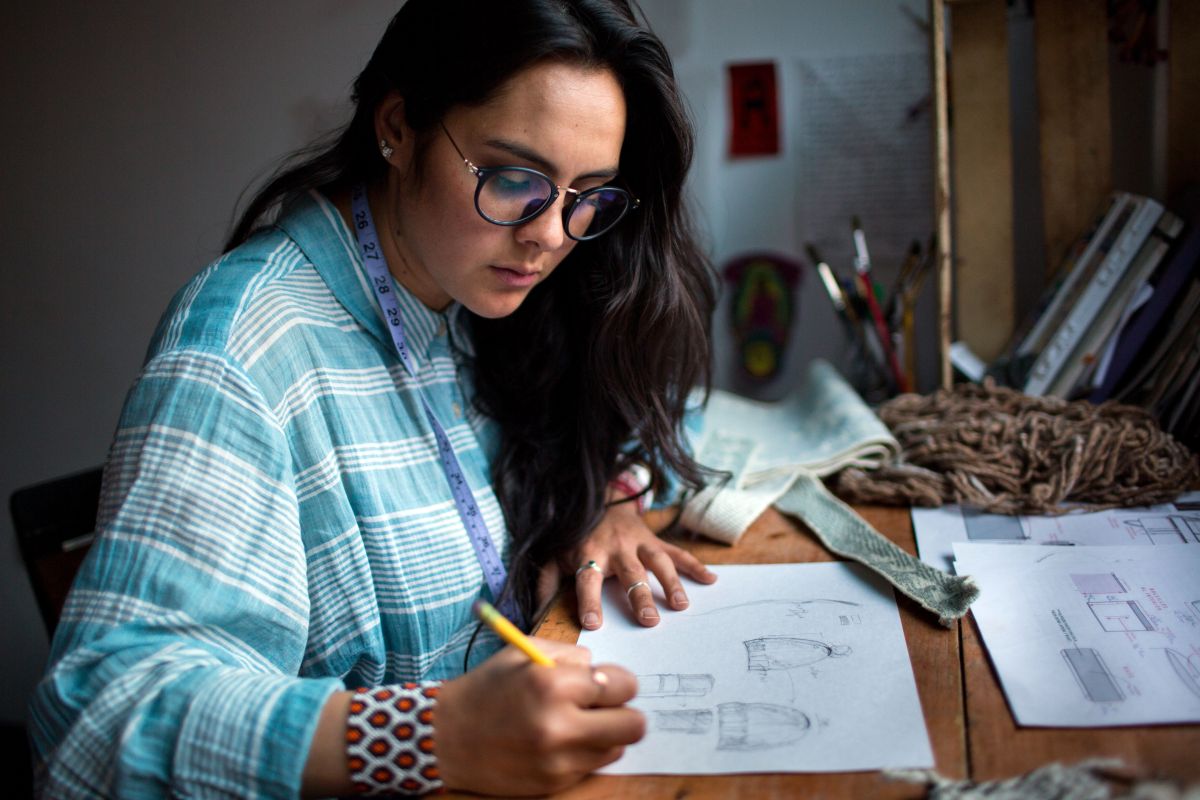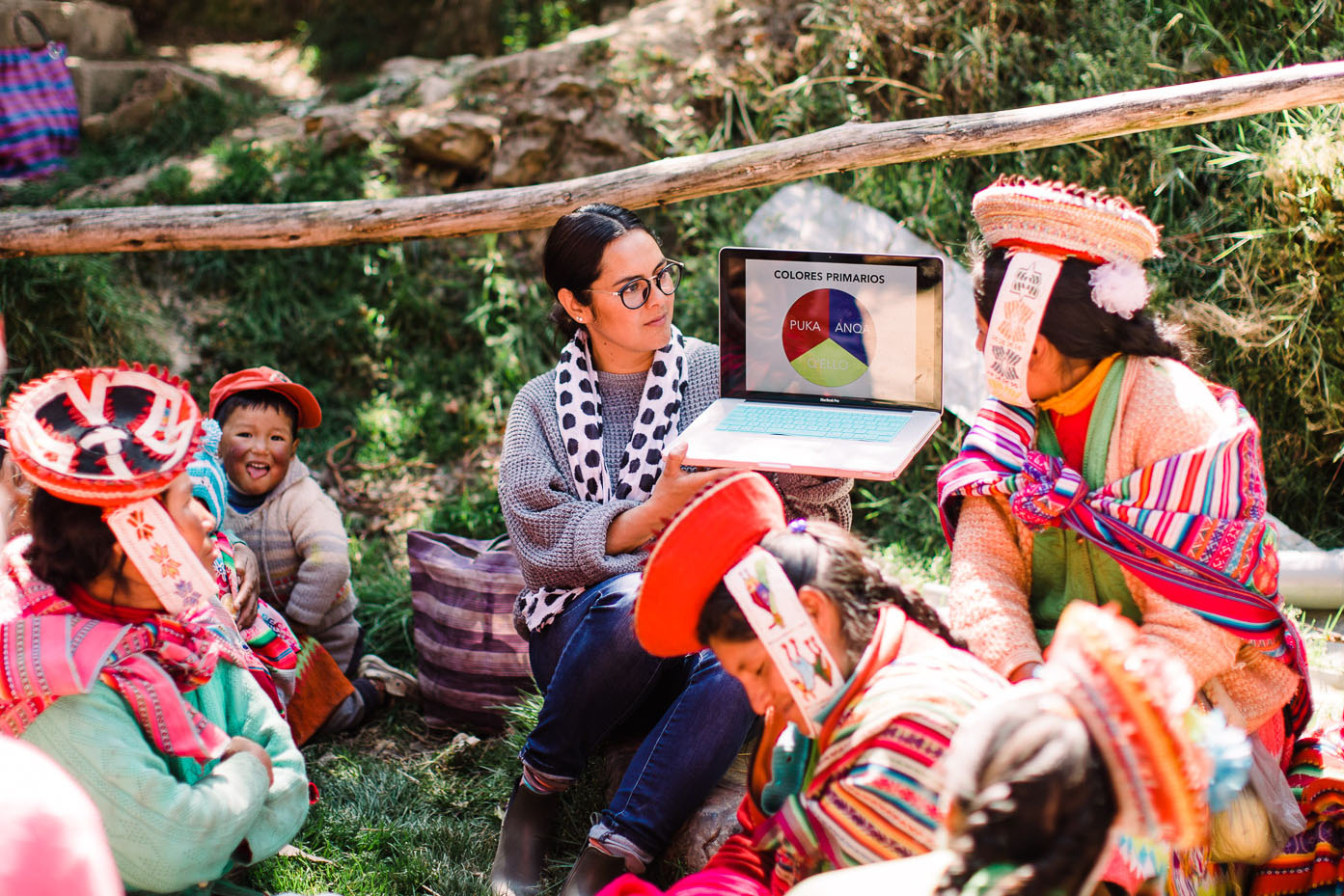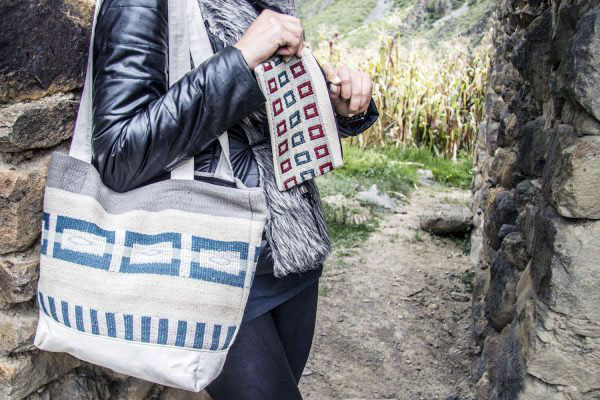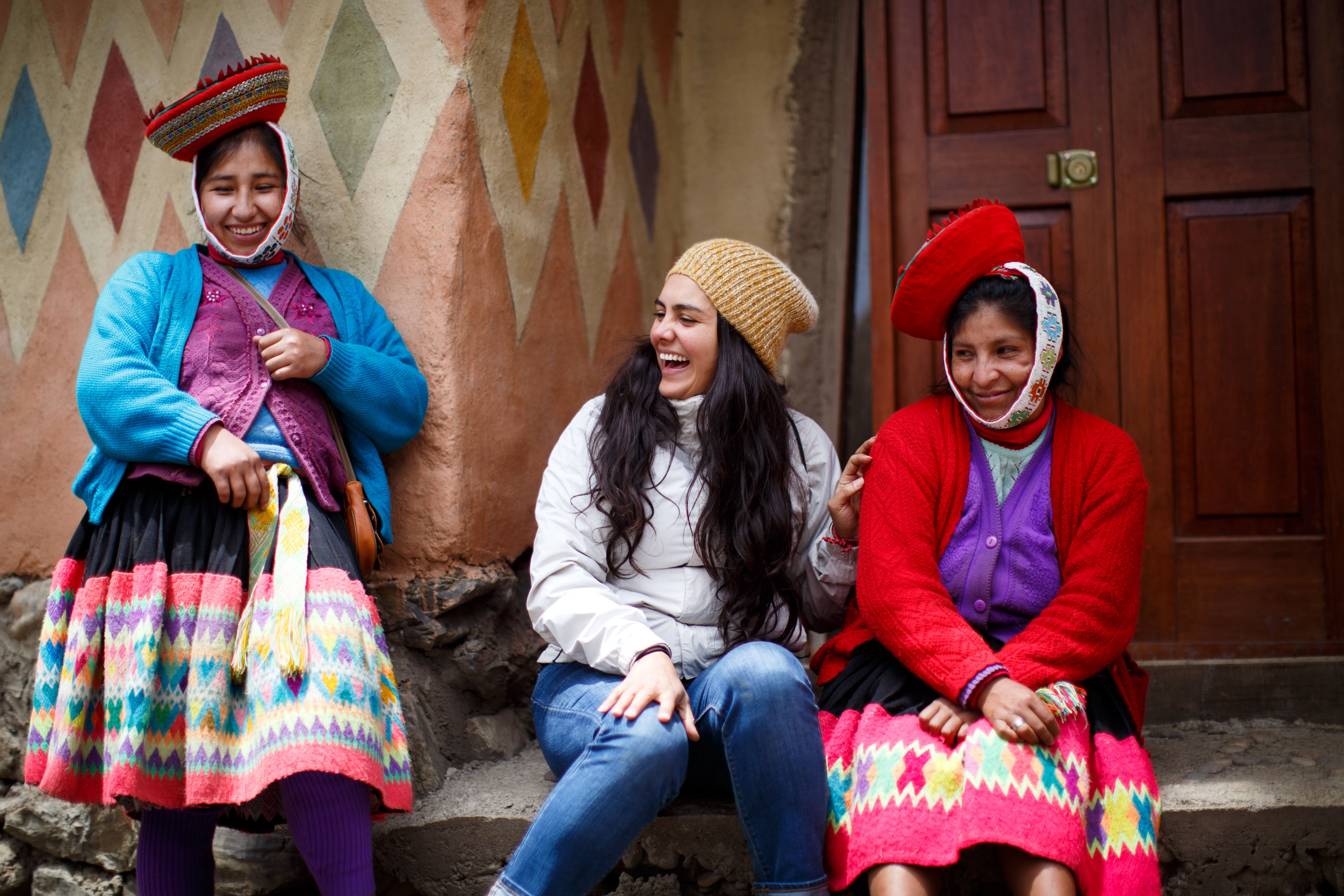
Alejandra Carrillo-Muñoz conceptualizes new designs for the Awamaki fashion collections. (Photo: Anna Watts)
There are hidden costs of quickly-made, low-priced clothing, but it can be tough to stop buying it. Clothing designer Alejandra Carrillo-Muñoz has a solution to what is sometimes referred to as “fast-fashion.”
“It is basically apparel that is rapidly being manufactured,” Carrillo-Muñoz said. “Obviously it has a very small cost, but someone is actually paying that cost and it often goes back to the environment and the people; artisan fashion is an alternative to that.”
Carrillo-Muñoz, visiting speaker for IU’s Mexico Remixed, will discuss how textiles produced by artisans in Latin America provide a sustainable alternative to fast fashion. Carrillo-Muñoz, who is the head designer at Awamaki, an organization that connects women artisans from Peru to global markets and ensures fair wages, will deliver her presentation at 6pm on Thursday, February 28 at Woodburn Hall. The presentation is free and open to the public.
Carrillo-Muñoz’s role as head designer is to conceptualize textile collections and oversee the production of artisan-made pieces that will be exported to the United States. Awamaki works primarily with Quechua women who are known for their weavings made from spun alpaca fleece and natural dyes.

Alejandra Carrillo-Muñoz explains the primary colors to Quechua women during a design workshop in Peru. (Photo: Ali Campbell)
“I do research as to the history and the culture and find creative ways that we can interpret that within the products that we sell,” Carrillo-Muñoz said. “The idea is to use traditional techniques and touch on ancestral knowledge and cultural symbolism, and reinterpret it in modern contemporary design.”
Carrillo-Muñoz said her job with Awamaki involves understanding what is trending in the global fashion market and developing relationships with the artisans so that she can help them apply their knowledge to modern designs.

Model poses with Awamaki purse and Scarf (Photo courtesy of Awamaki)
“I feel like I’m evolving as a designer continually in this space because I am not just dealing with a product that is manufactured in a factory; I am working with people,” Carrillo-Muñoz said.
The first artisan to inspire Carrillo-Muñoz was her mother, Aída Muñoz, who made her living from a craft called piteado, the art of embroidering plant fibers over leather. The Muñoz family lived in Colotlán, a rural town located in the Mexican state of Jalisco.
“Though my family and I had to migrate to the U.S. at a young age out of need, my parents have ever since instilled a pride and love for our roots and this shows through in both the processes and designs that I execute,” Carrillo-Muñoz said.
Carrillo-Muñoz recently moved back to Mexico to settle in the state of Oaxaca. In addition to designing for Awamaki, she is developing Talleres Diseño Artesanal, a foundation that provides workshops in marketing and contemporary design for Oaxaca artisans.
“The indigenous culture is vital to the identity of this region,” Carrillo-Muñoz said. “There are so many people that have shown interest in learning more about contemporary design and my role is to offer that information and then allow them to run with it.”
Carrillo-Muñoz said one of the most important lessons she has learned is to question her role as a designer collaborating with artisans. She said she asks herself what her limitations should be and how she can remain aware of how her presence affects the communities in which she works.
“What I do is so multifaceted,” Carrillo-Muñoz said. “It extends beyond the creative world. It deals most specifically with indigenous culture and indigenous people and that’s a sensitive subject that requires a lot of responsibility.”

Carrillo-Muñoz enjoys a moment with two women who weave textiles for the apparel company Awamaki. (Photo: Anna Watts)
Companies like Awamaki strive to provide fair wages for artisans involved in their organization, but Carrillo-Muñoz said that is not the case with every company in the artisan sector.
“As consumers we have to be very mindful of not just believing what a website says and really do our research and our homework to see what the impact is on the artisans and the communities,” Carrillo-Muñoz said. “As consumers we have that responsibility. It’s very easy for the artisans to become producers just like with fast fashion.”
Bo Choi, a visiting lecturer at IU whose work centers on sustainable fashion, said she looks forward to Carrillo-Muñoz’s visit. Choi said the fashion industry’s use of artificial dyes makes it one of the top polluting global industries.
“Now people are concerned about organic food and thinking more about non-GMO and healthy ways to eat,” Choi said. “It’s the time to starting thinking more about a healthy way to dress.”
This will not be Carrillo-Muñoz’s first visit to Indiana. She attended Purdue University for her master’s in fine arts degree. Carrillo-Muñoz said she loved her experience at Purdue because she was able to collaborate with scientists and others who thought differently than she did. The theme of collaboration with people from different backgrounds continues in her current work in Mexico and Peru.
“I’m working with culture and history and there’s so much knowledge in that,” Carrillo-Muñoz said. “I think it’s my responsibility to respect that before anything else and then offer everything I’ve learned from my education and experience, but definitely have it be a collaborative experience.”






